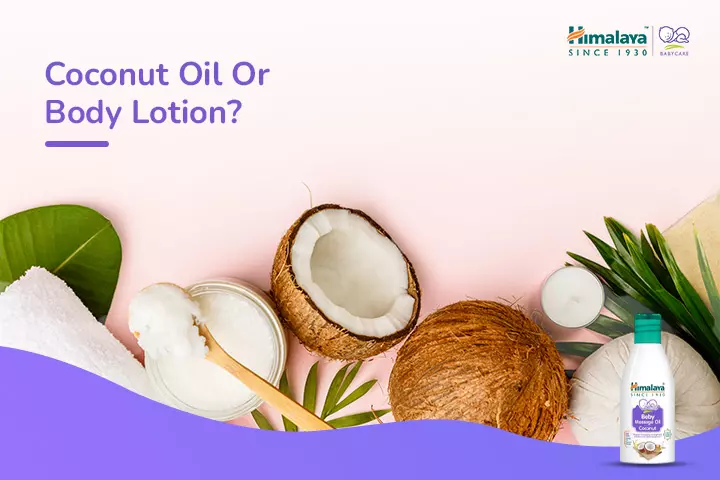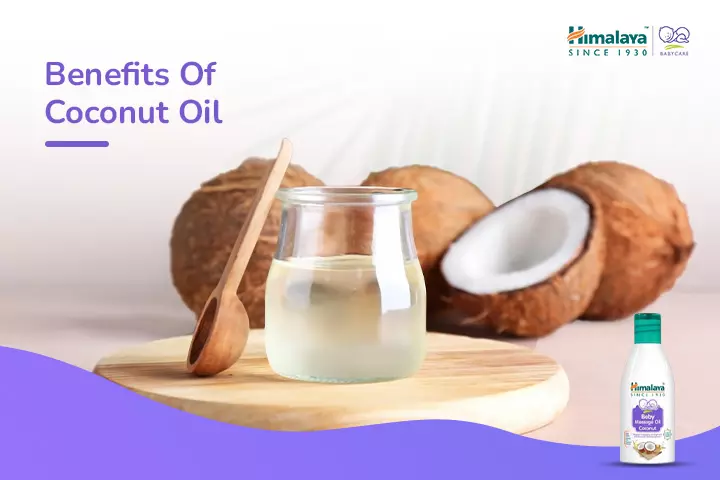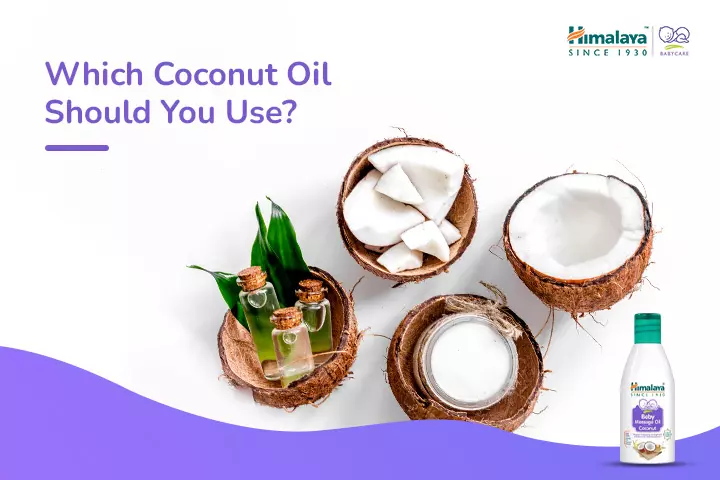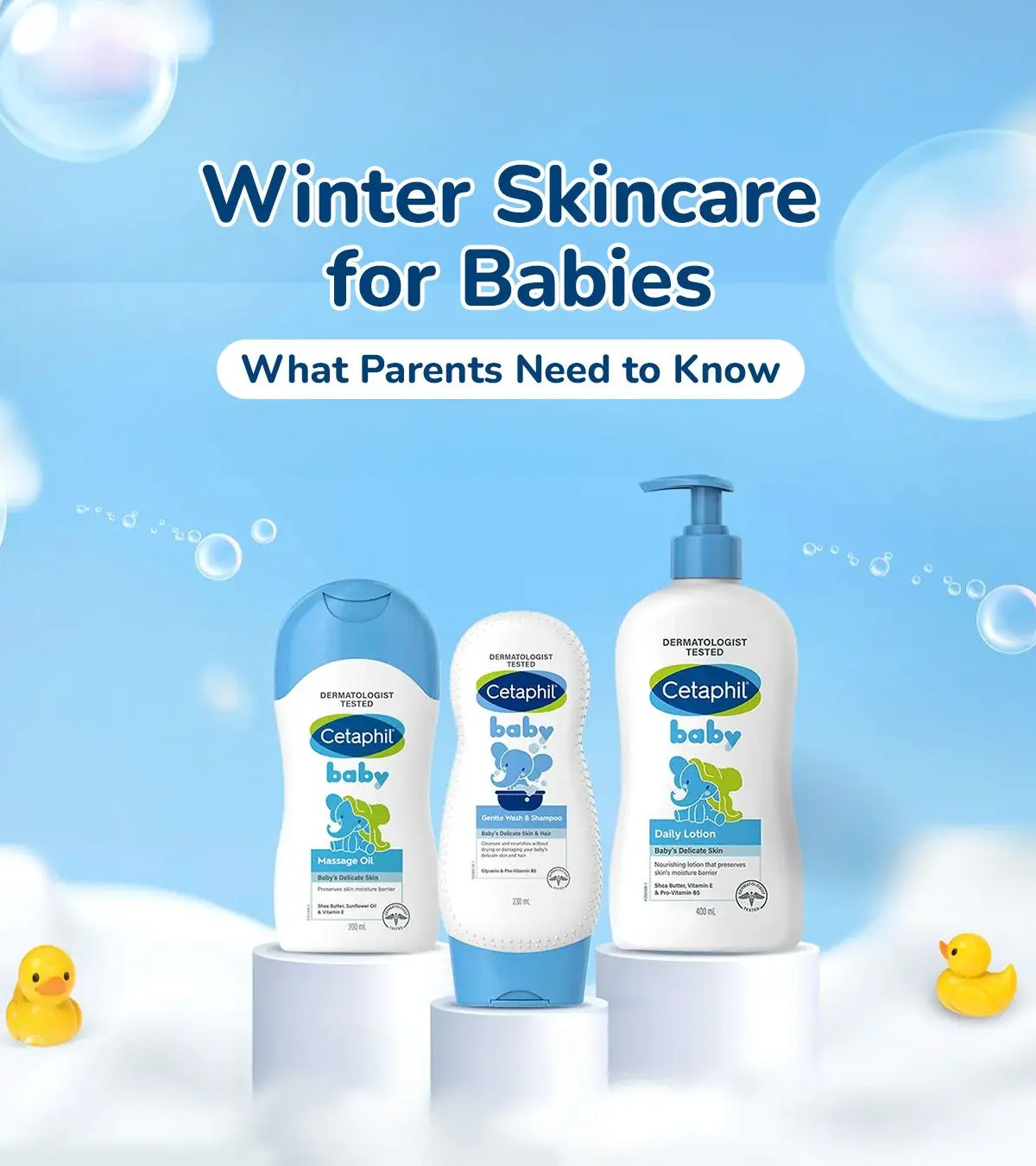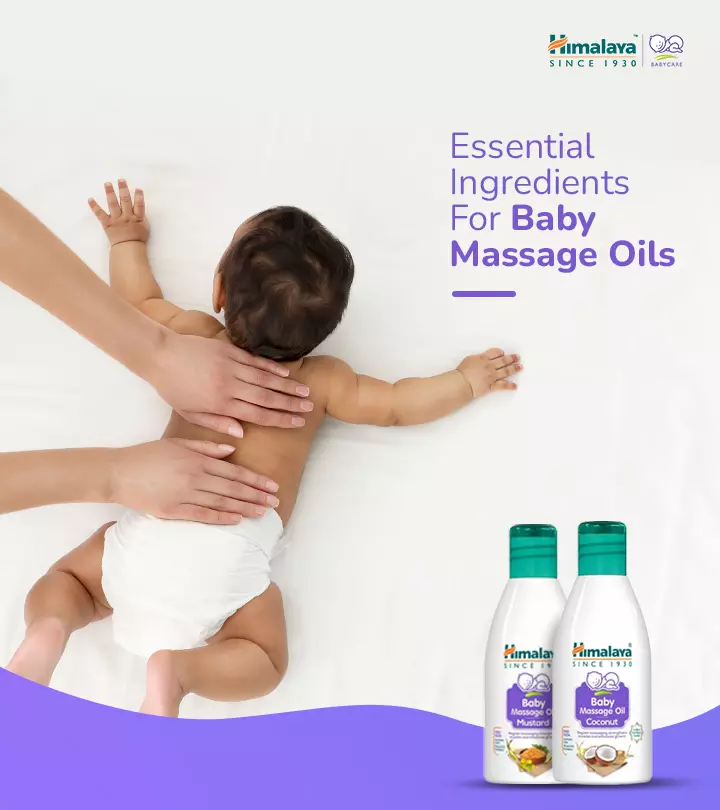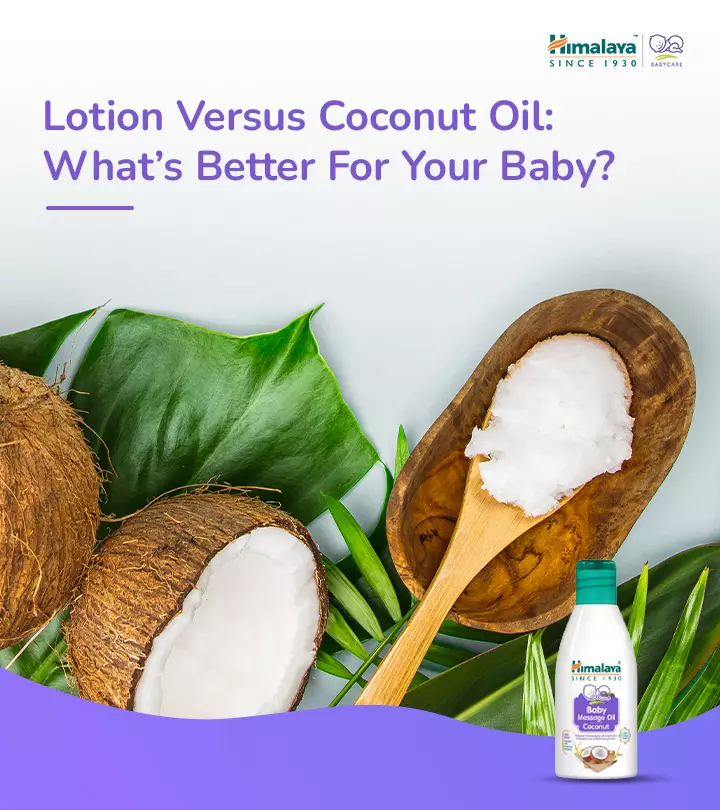

A baby’s skincare routine may not be as extensive as an adult’s, but the wide range of baby products would have us believe otherwise. In the first few months after a baby’s birth, baby products seem to multiply with the arrival of each eager visitor. As parents and caregivers, it becomes our responsibility to decide if we want to add them all to their skincare routine. We think, “Won’t a bar of soap offer the same benefits as a body wash?”
Not necessarily.
We may assume baby products with similar functions are interchangeable, but that may not always be true—case in point, body lotion versus body oil. While both work as moisturizing agents, they have numerous differences. Let’s take coconut oil as an example, as it is one of the most common oils we use to massage our babies.
Coconut Oil Or Body Lotion?
Coconut oil has been a multi-use product for babies for centuries, and even now, we find it in every household. Similarly, the use of body lotion on infants is not uncommon. So, where do the differences lie?
Coconut oil is a better moisturizer and sealant than body lotion. While lotions are ideal for daily use, they are unable to retain moisture. On the other hand, the thick consistency of coconut oil nourishes the skin and keeps the skin hydrated for extended periods while maintaining the skin’s natural barrier.
The watery texture of body lotions requires us to use a larger quantity on our babies, but just a pinch of coconut oil can do the trick. Because of this, we can use the latter for longer periods.
It is no surprise that coconut oil’s antibacterial and anti-inflammatory properties help ward off skin infection, irritation, and itchiness, which most over-the-counter body lotions are usually incapable of (1).
Coconut oil offers a cooling, soothing effect, making it a suitable choice for babies in hot summer. Body lotions, however, may not have the same impact on a baby’s skin for more than a few minutes.
Finally, coconut oil massages have a plethora of benefits of their own. Let’s take a look.
Benefits Of Coconut Oil
Coconut oil is highly recommended for babies. Here’s why.
1. Aids Physical Growth
Coconut oil is an emollient with antimicrobial properties, which makes it suitable for gentle skin. In addition, research suggests that coconut oil massages may help reduce the risk of skin infections and improve weight gain in preemies (2).
2. Hardens Soft Spots
It is a traditional belief that coconut oil massages can help harden soft spots in babies. These spots, known as fontanelles, are gaps in the newborn’s skull that allow the baby’s brain to grow in the first year of life. Although it is a common practice, the claim needs to be backed by more research.
3. Combats Cradle Caps
Cradle caps affect infants in the first few weeks of life. The skin concern is characterized by a dry, flaky scalp. Gently massaging the affected area with coconut oil may help tackle the problem. Let the scalp absorb the oil for half an hour, and use a baby comb to brush the flakes off before washing the baby’s hair with lukewarm water.
4. Alleviates Eczema
Eczema is a common skin condition in babies characterized by dry, itchy patches. Using an emollient like coconut oil may help prevent atopic dermatitis in the long run (3). Consult your doctor and massage your baby twice daily to provide moisture and hydration.
5. Fights Diaper Rashes
Massaging the baby’s diaper region with coconut oil helps relieve the discomfort caused by nappy rashes. Focus on the groin and surrounding folds, especially the spots where the rashes appear first. The antibacterial properties of coconut oil help soothe the condition and prevent it from coming back.
6. Soothes Insect Bites
Research suggests that coconut oil has fatty acids, which may repel insects and flies (4). Besides, its emollient and anti-inflammatory properties help soothe insect bites and soreness. However, ensure not to rub or put pressure on the affected area.
7. Works As A Decongestant
Chest rubs and massages using coconut oil may help decongest the nose and aid in treating a cold. For ages, the oil has been mixed with garlic cloves or camphor to help relieve cold. However, there is not enough evidence to support the claim. Nevertheless, with proper pediatric guidance, you may try this home remedy.
Which Coconut Oil Should You Use?
The market overflows with different brands of coconut oil, and if we are not careful, we may end up choosing one that contains mineral oil, parabens, or synthetic colors. Therefore, it is best to choose Himalaya, the reliable, authentic brand that has delivered products with uncompromising quality for ages. The Himalaya Baby Coconut Massage Oil helps nourish the baby’s skin, improves luster, and combats dry skin.
It is infused with the goodness of authentic herbs like olive oil, winter cherry, vetiver, aloe vera, and country mallow, which saves us the time and hassle of adding herbs to the oil to improve its effectiveness. The soft oil does not cause skin irritation and compared to traditional coconut oil, its chances of causing allergic reactions are less. Devoid of synthetic colors, parabens, and mineral oil, it is clinically proven to be safe for baby skin.
The Himalaya Baby Coconut Massage Oil aids healthy growth. Its soothing properties help the baby sleep better, and by alleviating the symptoms of skin conditions, it ensures that the baby cries less due to discomfort and pain. Moreover, it is affordable and easily available.
As parents, we only want what’s best for our little ones, and that’s what Himalaya stands for.
References
- Antibacterial and immunomodulator activities of virgin coconut oil (VCO) against Staphylococcus aureus:
https://www.ncbi.nlm.nih.gov/pmc/articles/PMC6817632/ - Topical application of coconut oil to the skin of preterm infants: a systematic review:
https://pubmed.ncbi.nlm.nih.gov/31267223/ - Overview of Reviews The prevention of eczema in infants and children: an overview of Cochrane and non-Cochrane reviews:
https://www.ncbi.nlm.nih.gov/pmc/articles/PMC3399595/ - Better than DEET Repellent Compounds Derived from Coconut Oil:
https://www.ncbi.nlm.nih.gov/pmc/articles/PMC6145915/
Community Experiences
Join the conversation and become a part of our nurturing community! Share your stories, experiences, and insights to connect with fellow parents.

